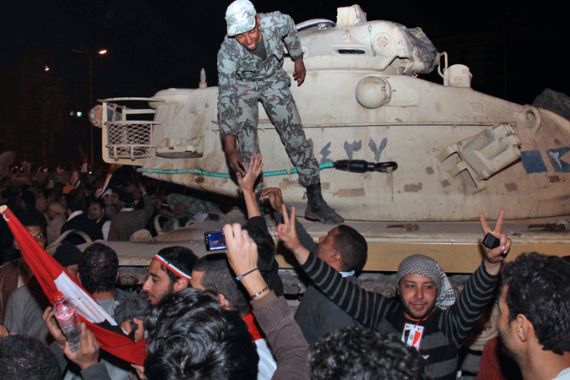Middle East rulers make concessions
Moves seen as bid to appease people after mass protests in Tunisia and Egypt toppled long-serving presidents.

 |
|
Yemeni President Ali Abdullah Saleh said he would not seek to extend his term when it expires in 2013 [EPA] |
Hosni Mubarak stepped down as president of Egypt on Friday, handing over to the army and ending 30 years of rule, bowing to pressure from protesters demanding he go.
Protests have spread around the Arab world since starting in mid-December in Tunisia. Here are details of some of the concessions made around the region:
| Egypt |
Vice-president Omar Suleiman has said a military council would run the affairs of the Arab world’s most populous nation following the resignation of Mubarak.
A military statement later promised Egypt’s 80 million people free and fair elections along with other concessions made earlier by Mubarak.
| Bahrain |
Bahrain’s king has decided to give $2,650 to each family on the Gulf island, the latest step the Sunni rulers have taken to appease the majority Shia public before protests planned for next week.
Although most analysts do not see any immediate risk of revolt, the kingdom is considered the most vulnerable to unrest among Gulf Arab countries.
| Tunisia |
Tunisia’s former president Zine El Abidine Ben Ali fled to Saudi Arabia last month after 23 years in charge of a police state.
Mohamed Ghannouchi, prime minister under Ben Ali since 1999, now heads an interim government. He appointed opposition figures to a national unity coalition and later, after more violent protests, purged the new cabinet of most of the remnants of Ben Ali’s government.
Tunisia’s interior ministry also replaced 34 senior security officials to overhaul the network of police, security forces and spies built up by Ben Ali over two decades. Interim head of state Fouad Mebazza has promised the start of a national dialogue to try to address citizens’ demands.
| Algeria |
Algeria’s state of emergency, in force for the past 19 years, is to be lifted soon, official media quoted President Abdelaziz Bouteflika as saying on Thursday.
The announcement followed pressure from government opponents who demanded the emergency powers be scrapped.
Several Algerian towns including the capital experienced days of rioting and protests last month, provoked by a jump in food prices.
Two people died and hundreds were injured, officials said. To calm the situation, Algeria cut the cost of some basic foodstuffs and increased wheat supplies to markets.
However, protests erupted again on February 12, with pro-democracy demonstrators ignoring an official ban to march in the capital, Algiers.
| Yemen |
Yemen’s opposition has said a dialogue with the government, which was expected to start this week, had been delayed so that it could consult with opposition figures outside the Arabian Peninsula country.
President Ali Abdullah Saleh said on February 3 he would not seek to extend his presidency, in a move that would end his three-decade rule when his current term expires in 2013.
Saleh also vowed not to pass on the reins of government to his son. He appealed to the opposition to call off protests.
Saleh promised direct election of provincial governors and also agreed to re-open voter registration for elections due in April after opposition complaints that around 1.5 million Yemenis were unable to sign up.
| Jordan |
King Abdullah of Jordan has replaced his prime minister after protests, but the opposition has dismissed the move as insufficient.
The king asked Marouf Bakhit, a conservative former prime minister to head a new government after accepting the resignation of Samir Rifai. He asked the new government to take speedy and tangible steps to launch political reform.
Jordan has announced a $225m package of cuts in the prices of some types of fuel and staples including sugar and rice. Rifai also announced wage increases to civil servants and the military in an attempt to restore calm.
| Kuwait |
The ruler of Kuwait has announced the distribution of $4bn and free food for 14 months to all citizens, although his country is not facing any protests.
Each of the 1.12 million native citizens will get $3,572 in cash as well as free essential food items until March 31, 2012, Kuwait’s emir Sheikh Sabah al-Ahmad al-Sabah was reported to have said.